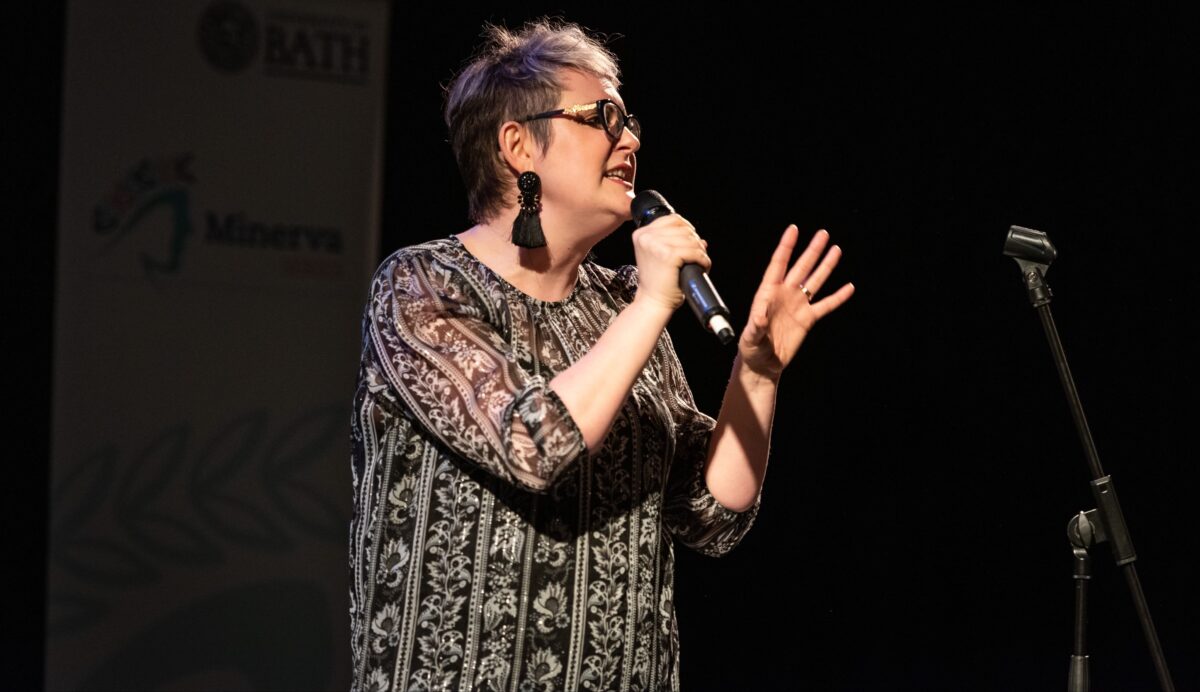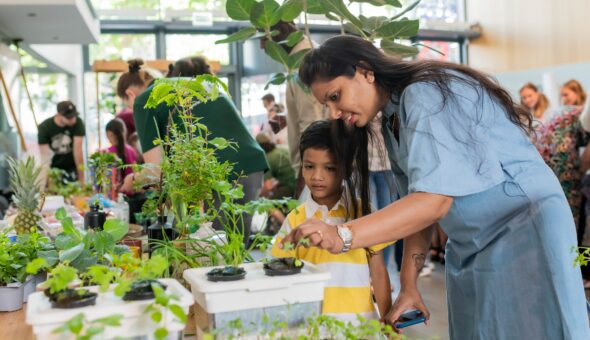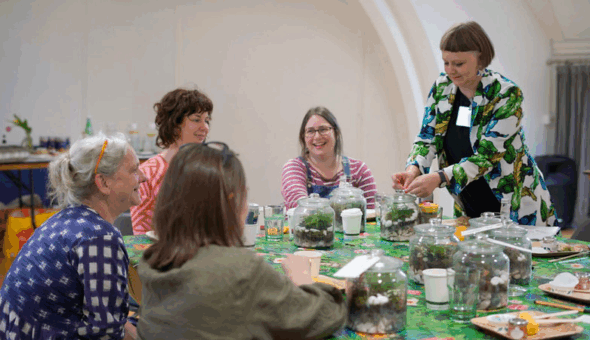Back in 2021 we looked at how to create an engaged lecture series. We wanted to explore how to create a two-way lecture series that engaged local communities with research. We asked three questions that had informed the development of the Minerva Lecture Series at the University of Bath:
- What if you offered the lecture series as a platform for community groups and speakers?
- How can you use different formats to create two-way engagement?
- Can you source your lecture topics from the local community?
As the Minerva Lecture Series gears up for it's 2025 programme we wanted to reflect on these questions and see how the Minerva Series has grown over the last 4 years and if it's still an engaged lecture series.
A Platform for Communities
Last time we talked about bringing in research collaborators to speak alongside researchers. Now we've gone a step further and matched up researchers with community speakers who are also exploring the topic, but from a different perspective. For example, at our recent lecture 'Ecological loss and grieving the non-human' we matched up two researchers, Caroline Hickman and Darcy Harris, with Caleb Parkin, an eco-poet and author, and Emily Malik, Director of the C.I.C Eco-Wild, to explore the topic of grief for the planet and political systems. This gives us a broader, more holistic view of a topic, which comes in handy when you're tackling such large issues! It also helps situate research in a community context. Community groups can use insights from research to support or challenge their work and researchers can learn what their research looks like on the ground and be constructively challenged by community knowledge.
We now have community speakers at every Minerva Lecture alongside researchers from the University of Bath. This provides a golden opportunity for relationships to form, especially when we've helped matchmake the researchers and community partners. Before each lecture we hold a pre-meet for the speakers to get to know each other which, along with the event itself, has allowed researchers to forge links with community groups working on the same topic. We also know the series has been a platform for community groups to get to know each other and start working together. But what is the outcome of these relationships? And do they stick? This will be a key focus of our evaluation of the Minerva Series going forwards.
Of course, this hasn't been without its challenges. One of which is how do we compensate community speakers for their time and expertise? We don't have the budget to pay full speaker fees for their time and contributions and we don't pay researchers anything for taking part (this is part of their role as researchers). We've settled on paying an honoraria which we recently increased to £150 to recognise the contribution made by community speakers. However, this means we need to engage with University finance systems, adding extra layers of paperwork and bureaucracy to community involvement. We will be keeping an eye on this and asking our community speakers if this is the right approach and proportional to the work they have done.
A Standard Format with Room to Grow
As we began involving more community speakers in lectures we found that a standard format established itself. This consists of a short introduction by the chair, 7-10 minutes from each speaker and then a Q&A usually split into a chair led Q&A and an audience Q&A. This isn't the only format we use in the series, but we've found it helpful when balancing contributions from up to four speakers in a one hour event. Giving more time for the Q&A has allowed the audience to take an active role in driving the event and given our speakers the ability to work together and build off each other to answer complex questions.
However, we've found that our increase in speaker numbers and delving into sensitive topics e.g. loneliness, animal testing, eco-anxiety and death has led us to think about new additions to the format. At our event 'Conversations on Loneliness' which explored what loneliness is, personal stories of loneliness and if/how we should tackle it, we added a 30 minute informal conversation space to the end of the lecture. This allowed time for attendees and speakers to mingle, reflect on the discussion and share their own experiences of loneliness with one another. We discovered many audience members were practitioners themselves either formally or informally looking after people struggling with loneliness or other mental health issues and this gave them a great opportunity to share their experiences and learn from peers.
So we've established a standard format that helps us balance community and research contributions. But we're now thinking about the flexibility we need to build in to give people a space to reflect and build new relationships.
Lecture Topics from the Community
Thinking about the Minerva Lecture Series as a platform for communities as well as researchers has helped us understand the value it brings to the Public Engagement Unit and the University of Bath. This also means seeing the series as not only an engagement opportunity, but a catalyst for creating relationships between researchers and community groups (or community groups with each other).
A key part of this transition has been building up a network of community contacts that lets us matchmake researchers with community speakers and identify topics that are relevant. You can find out more about our community engagement work here.
We can only do this listening and matchmaking work because we have a member of staff (Laura) who spends most of her time building and maintaining relationships with local communities. This work is funded by the Participatory Research Funding from Research England and has allowed the Minerva Series to change along with our overall approach to engagement and involvement. Good community engagement takes time and resource and we can see the positive impact this has had on the Minerva Series.
Laura's work has given us the opportunity to source lecture topics directly from the community. Not only does this mean we're covering topics that are important to local people and as a result, increasing audience size and diversity, it also means we can situate research in a community context. How can research from the University of Bath help with pressing local or national issues such as loneliness or clean energy? Through the Minerva Lecture Series we can build relationships between researchers and community groups that allow research to be part of and benefit the local community.
Revisiting an Engaged Lecture Series
So, we've further embedded community speakers in series, settled on a more standard format while continuing to experiment and used our connections to find lecture topics that we know are relevant to the local community.
We've continued to diversify our audience and continue to see new attendees at each lecture (at most events ~50% of attendees have never attended a Minerva Lecture before) so we're now accessing brand new parts of our local community who haven't engaged with the University or research in this way before while retaining a core audience. We can do this because the series acts as a platform for community voices and issues, alongside insights from research.
The next set of challenges involve digging deeper into the relationships that emerge from the Minerva Series. What are the characteristics of these relationships? Do they last? And what can we do to promote better research-society relationships through an engaged lecture series? Watch this space for more reflections.
Rob Cooper is Public Engagement Officer at the University of Bath
Respond



